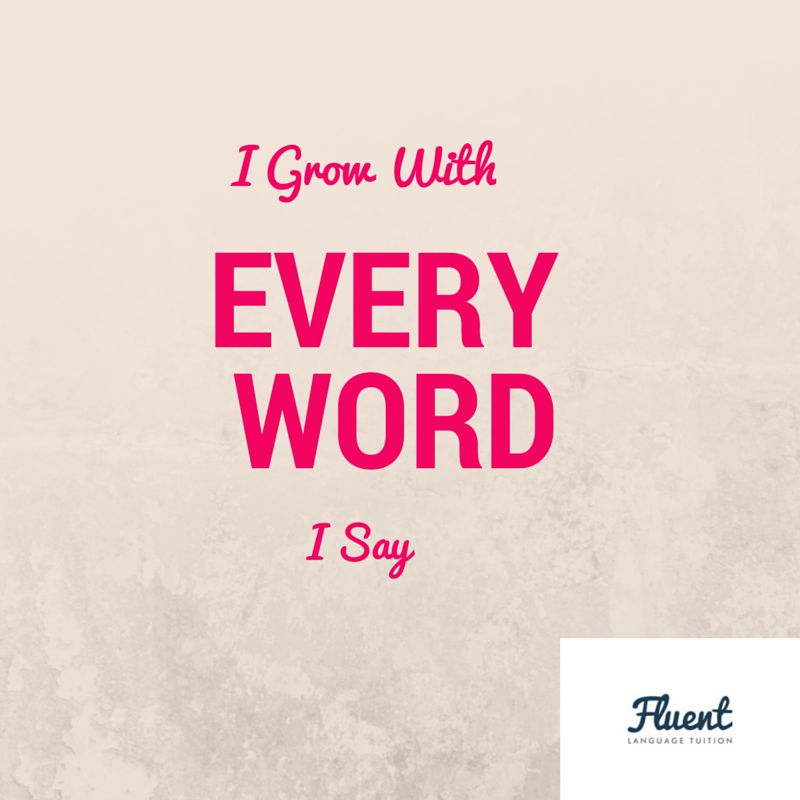Waw, mae'r amser yn rhedeg...time flies (or runs, as my dodgy translation implies).
I have been learning this new language for about 13 months now...so let's have a look what the middle ground looks like!
Before you read the post, download your copy of the free "Teach Yourself Toolkit" in the Fluent Cool Kids Club. It's got links to all the resources I use.
I Spoke Lots of Welsh in Wales!
Back in August, I fulfilled one of this year's language goals and spoke Welsh at the Eisteddfod, the National Festival of Wales. The festival was one week long, with a big site located in Abergavenny, South Wales.
I pitched up my tent for 4 days at one of the official campsites. What a total delight! Immediately, I was hearing people of all ages speak Welsh around me and everyone addressed me in Welsh. In fact, I was surprised, because turns out..
Welsh is real, mae'r Gymraeg yn go iawn!
It's not a postcard language, and it's not even a dying language. Not when you hear and see it all around you, witnessing thousands of people as they celebrate their art, music and identity. Even though I had been learning the language for a year, this was my first experience of feeling how truly alive Welsh is in this world.
In terms of culture and enjoyment, the Welsh festival was amazing. Wales is such a small country that you can make friends with everyone in just a week. From meeting the bands I love (Plu, Candelas) to hanging out with the creators and learners of Say Something in Welsh, every conversation evolved naturally. I often found myself invited to film screenings and discussions (lots of gwin am ddim - free wine!), quickly forgetting I was attending the festival on my own.
Language Immersion is Easy
The Eisteddfod visit showed me that it doesn't take much to create an environment where you learn this new language. Simply go where people speak it. Hearing the language spoken around me was a boost even before I opened my mouth. Yet I also worked on creating speaking opportunities from the start by volunteering as a steward so I was forced to get involved and talk to people from the minute I arrived. It was the perfect Welsh immersion environment.
Impressions from Eisteddfod week
I liked having English as a backup. It was very reassuring to know that I can stop or ask for a word when I need to... I would have never remembered the word for "self-employed" (hynan cyflogedig) if it hadn't been for so many reminders from my conversation partners.
The Fight For Welsh Language Rights
One of the groups I want to highlight is Cymdeithas yr Iaith, an advocacy group for Welsh language rights.
Cymdeithas is an activist group founded in 1962, promoting the right of Welsh citizens to live their lives in two languages. Without them, there would be no bilingual road signs. Old Welsh people may not understand official letters sent in English only. And there would be no education in Welsh. In other words, the language would be dying a lot faster.
Find out more about language rights in our podcast episode with Wikitongues.
If you want to join me at the next Eisteddfod, here's a helpful guide for English speakers.
Speaking and Understanding Welsh After 14 Months
The benefits of visiting Wales and speaking and hearing my target language took hold right away. I was myself having a 15 minute Welsh conversation with an old man in a tiny village, just one week after.
Since returning from Wales, it's been tough to maintain this immersion but I continued to practice. Back in October, I booked a tutoring session with Mererid and my range of conversation was HUGELY improved. It's really great to know that you're impressing your tutor!
I continue to work through the Say Something in Welsh lessons and switched from the old to the new course system back in September. Yes, so I started at the beginning again but that doesn't feel like a setback at all. I loved the opportunity to consolidate my language skills so far. In fact, I got through the first 8 lessons at 1.5 speed, and am now halfway through the course. Say Something in Welsh is intense at times, and it's making me feel like a very confident speaker. I'm also reading a lot of Welsh as I subscribed to the learner magazine Lingo Newydd.
Grammar and Vocab in Welsh
My system is to practice WLCR (Write, Look, Cover, Repeat) using my own notebook. I also maintain a personal Memrise course with the 30% of words that are the hardest to remember. So overall, my vocabulary in Welsh has now grown to about 500-700 solid words - maybe 1000? Who's counting! Studying vocabulary is never going to be a walk in the park when you don't have classes or conversations every day.
--> Learn more about WLCR techniques in my Vocab Cookbook
I'm very happy with my grammar progress, finding that I'm able to say and describe more patterns (he says mae o'n dweud...he said naeth o'n dweud...he was saying oedd o'n dweud ...and so on). Everything still seems to have lots of extra rules and dialects, but I've not had to study many tables at all.
Being an experienced language learner is a big advantage for me here. I find myself seeing patterns and recognising the rules a lot more quickly, and I am confident when I make new sentences out of these structures. I always loved how language can be so playful when you get a pattern.
My Welsh Language Level After 13 Months?
I'm not performing to a set standard, however I've recently downloaded the Mynediad (Beginners) exam guidelines. I'm planning to work through these materials with a tutor. I am pretty much there, meaning I've reached the end of level A1 by studying "little and often" for a little bit more than a year.
Is this impressive? No idea. I don't feel that I would be able to share this on YouTube as a major polyglot win, but at the same time this is something I know I've learnt for life.
The thing about studying for 13 months is this: My time is not wasted just because I've not learnt everything yet. It is time well spent, moving forward, step by step to conversation levels. When you think about how quickly you can learn a language, it's easy to consider any slow periods as "wasted time", but I believe that the long-term commitment is what counts when you want to progress and grow your mind.
What's Next?
In terms of listening, I wish that I had more opportunities to hear real people instead of TV or radio characters. I feel ready to graduate from TV subtitles, but the radio and TV are still too fast for me. What to do?
As a podcast junkie, I would love a slow Welsh news podcast like News in Slow French, or perhaps a learner's story show. I have heard that there's some useful stuff on YouTube, but it's not enough. Give me more Welsh!
My biggest goal is to speak and eavesdrop more. I want to be able to witness conversations in Welsh easily, so that means the following practical goals for December:
- Book another tutoring session
- Speak Welsh at Polyglot Pub on 6 December
- Spend an hour every week listening to the language, ideally spoken by real people around me (failing that, BBC Cymru and S4C will do)
I'm also planning a social media project based on my friend Lindsay's new Social Media Course. More about that in the next blog update!
How Are You Getting On In Your Language?
Are you learning lots, or struggling to find time? Let me know in the comments below!





